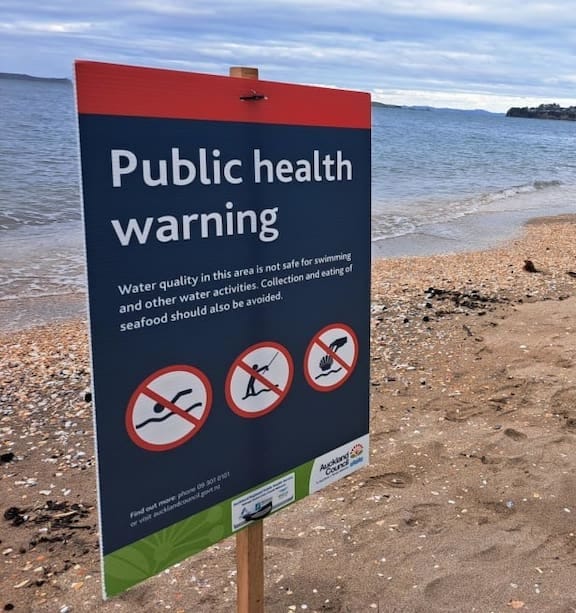The tag line for the picture is a simple one. Yes, punctuation can be crucial for safety, but to ensure your safety, you must be smart and understand that ignorance can be a deadly affair.
With summer upon us, and when trying to cope with 30°C temperatures and heat waves, going for a swim at the local beach, lake, or river seems like a great way to cool off and relax. To return to the picture reference, it doesn't have to be alligators in the pond to make it deadly. Your most significant health risk is going to be from the germs, bacteria, and viruses that are microscopic and invisible to your naked eye.
From practical experience, I can tell you that cross-contamination of germs can lead to foodborne illness, also known as food poisoning. Not wearing gloves when putting a Band-Aid on someone can lead to you contacting Hepatitis B or C. Picking the wrong green leafy thing to wipe your butt can lead to many nights of discomfort.
Those friendly ducks or beavers, so cute to watch in the park pond, are dumping their feces into the water, and you risk getting Giardiasis, often called Beaver Fever, from a microscopic parasite called Giardia that occurs in many animals, including pets, rodents, cows, sheep, and yes, beavers too.
Be water smart. Google the local health authorities to see if the lake, river, or pond at your RV campground or park has been tested for contamination. Testing typically focuses on detecting indicators of fecal contamination, such as E. coli or enterococci bacteria, which suggest the presence of pathogens that could cause illness. If bacteria levels exceed established safety thresholds, beaches may be temporarily closed or advisories issued to warn the public.
Yes, I know that you don't drink lake water like your goofy dog does, but it only takes a splash on your face to potentially put you at risk. Understand the risks and take precautions. Visit the website below for more information. https://oceanservice.noaa.gov/hazards/beach-dangers/







Blue green algae has also arrived at our doorsteps. A danger to humans, livestock and pets. It seems to occur once summer revs up with the heat. Be cautious!